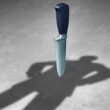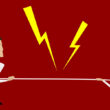Some researchers (such as FaId al-Kashani) in the summary of the book al-Tihabi Niranil Ahzan, has written the following, the summary of which is as follows:
“When the people swore allegiance to Abu Bakr (la), Malik b. Nuwayrah, one of the faithful companions of the Prophet who was staying with his family just outside of Madinah, entered the city enquiring about the succession to the Prophet. It was a Friday when Malik entered the masjid and he saw that Abu Bakr (la) was seated on the pulpit of the Prophet delivering a sermon. Seeing this he asked, “Is this man from the clan of Taym?” The answer came in the affirmative. Malik said,
“Where is the successor of the Prophet regarding whom the Prophet himself ordered us to obey and befriend (he meant Imam Ali)?"
Mughirah b. Shubah replied, “You were absent while we were present here, and one incident after another other took place.” Malik said, “By Allah! No incident took place but that you all committed treachery with Allah and His Prophet.”
Then he came near Abu Bakr (la) and said, “O Abu Bakr (la)! Why do you ascend the pulpit of the Prophet of Allah while his successor (Imam `Ali (as)) is seated (down)?” Abu Bakr (la) said, “Throw this Bedouin who urinates upon the backs of his soles, out of the masjid!”
Hearing this, Umar (la), Khalid (la) and Qunfudh (la), the three men, arose and trampled him under their feet and after this insult and beating, forcefully removed him from the masjid.
Malik sat on his mount and left Madinah, and while heading back towards his hometown he was reciting these couplets: “We obeyed the Prophet of Allah while he was amongst us; then O community, what is my business with Abu Bakr (la); if the young camel (meaning Abu Bakr (la)) dies, the other young camel (Umar) shall sit in his place; while this, by the house of Allah, is bit an episode that breaks the back; he (Umar (la)) defends him (Abu Bakr (la)) and conceals his faults as though he is at war against men or is standing at the end of a grave (in grief); thus if the successor (of the Prophet) takes a stand, we shall remain along with him similar to the embers.” In some books the last part of the couplet is stated as, “Thus if among the Quraysh a group of righteous men take a stand to defend the right, we shall support them.”
Ref : Baytul Ahzan, Chp.3, Pg.90







